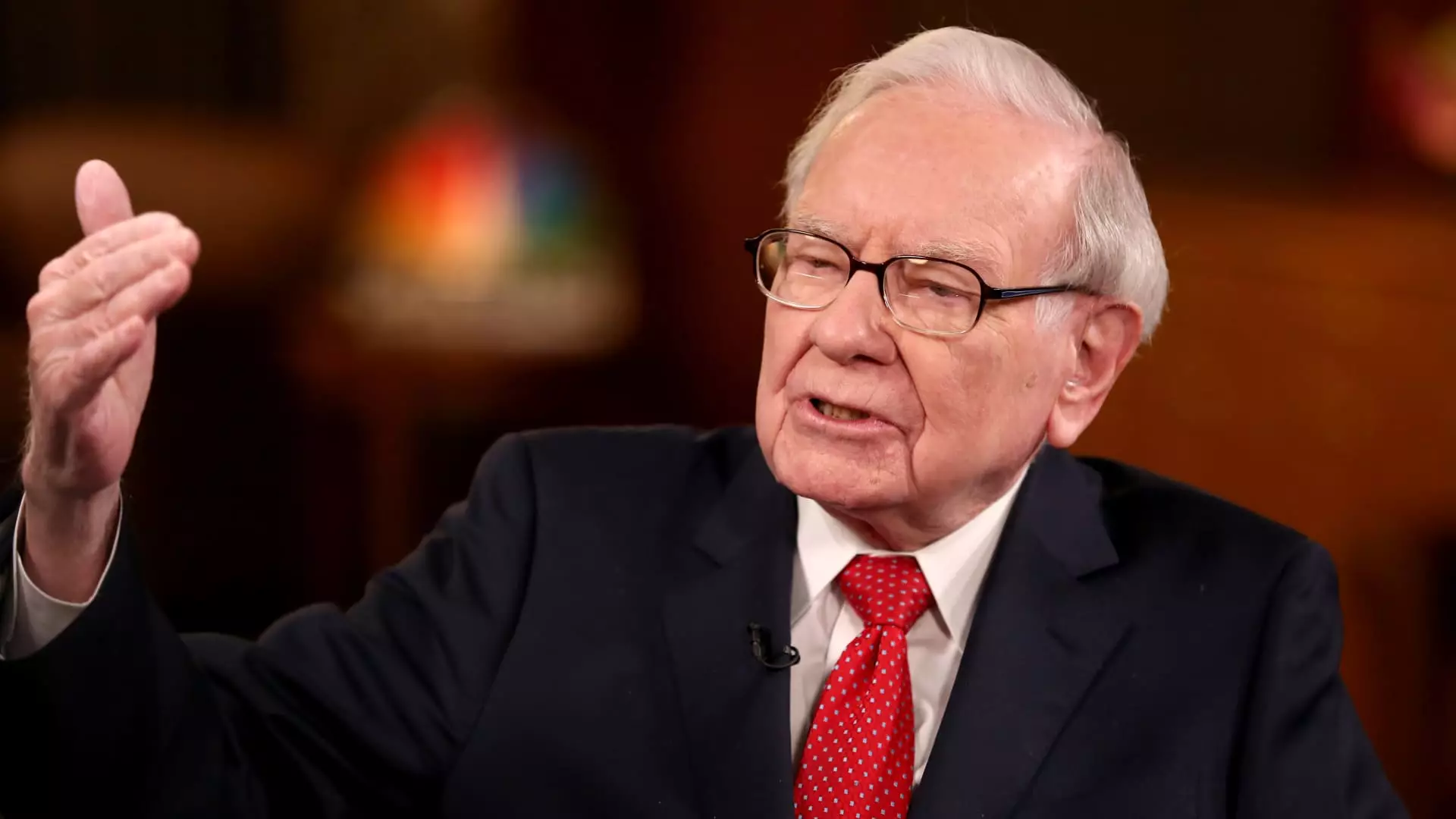In an era where misinformation can proliferate at lightning speed, the intersection of social media and economic commentary has become a battleground for perception versus reality. Recently, President Donald Trump shared a video on his platform, Truth Social, which claimed that he is deliberately crashing the stock market—a claim that was tied to supposed endorsements from none other than Warren Buffett. This partnership of claims and denials reveals not just misinformation but a broader crisis in the way we communicate about economic policy and its implications.
The outlandish video, which suggests that Trump is manipulating the market to achieve lower interest rates, struck a chord with some segments of his base. Despite being a concoction of speculative assertions—particularly the erroneous attribution of economic praise to Buffett—it reveals an unsettling tendency among some politicians to capitalize on the naivety of followers. In truth, Buffett’s response was unequivocal; the legendary investor denied any link to such claims, with Berkshire Hathaway swiftly dismissing these rumors.
Buffett’s Reluctance to Engage
Warren Buffett, who has spent a lifetime mastering the nuances of the financial markets, has taken a more reserved stance recently. At 94 years old, he expressed his desire to minimize commentary related to the current economic environment until the Berkshire Hathaway annual meeting in May. This not only reflects his cautious approach in a volatile climate, but also underscores an ethical stance against the rampant misinformation permeating social networks.
In conversations with CNBC, Buffett branded tariffs as “an act of war,” a comment that resonates deeply in the present political climate. While most leaders play a game of public relations with vague statements, Buffett chooses a more principled route—evoking historical economic principles and consequences rather than playing to populist sentiments. His characterization of tariffs as taxes on goods resonates strongly in an age where policy decisions have far-reaching global ramifications.
The Impact of Misinformation on Public Trust
The underlying issue in the Trump-Buffett debacle is the way misinformation detracts from serious discussions about economic strategy. As someone who champions free trade and transparent markets, Buffett’s reputation is invaluable. The President’s video, however, not only misrepresents what a respected figure like Buffett believes but also invites people to accept political narratives without critical assessment.
The ramifications extend beyond just the individuals involved; they touch the core of public trust in economic leadership. When leaders share misleading information, they contribute to a general malaise where citizens become apathetic, polarized, and suspicious of genuine economic discourse. The decisive actions that Buffett took in response to this unfolding drama reveal the clout he carries in the domain—but leaders must recognize that they, too, are stewards of economic understanding.
Substantive Economic Policy versus Populist Rhetoric
Trump’s tendency to deploy populist rhetoric can be captivating but often lacks substantive economic policy analysis. The notion that one might intentionally crash the stock market for a temporary gain in interest rates is not only flawed but dangerous. As Buffett has emphasized repeatedly, trade conflicts and poor economic decisions can lead to dire consequences, not just nationally but globally. His warnings during Trump’s earlier terms—cautioning against tariffs and other aggressive measures—remain relevant in today’s discussions.
Critically, an election cycle fueled by this kind of sensationalism threatens to drown out voices that stress the importance of informed economic decision-making. By focusing on the political theater rather than the economic ramifications, society risks perpetuating cycles of misunderstanding that can hinder growth and economic stability.
The dynamic between Trump and Buffett reflects a broader commentary on the state of political and economic discourse in America. As the misinformation machine cranks out content, the responsibility rests on leaders to clarify and communicate responsibly, fostering a well-informed public that can navigate the complexities of their economic realities. Engaging meaningfully in this arena is not just an option; it’s a necessity.

